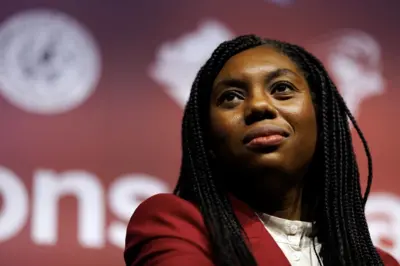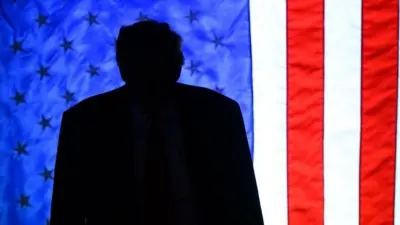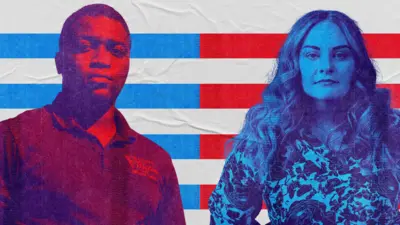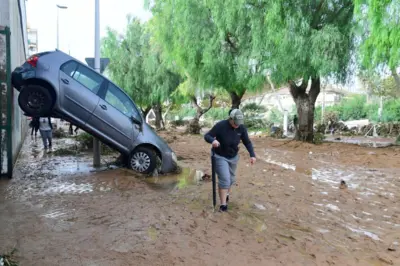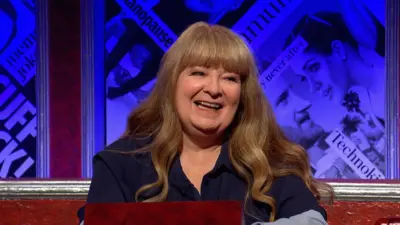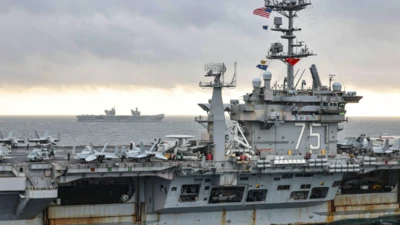We've updated our Privacy and Cookies Policy
We've made some important changes to our Privacy and Cookies Policy and we want you to know what this means for you and your data.
Irish reluctant to take EU handout
- Author, Mark Simpson
- Role, 91ČČąŹ Ireland Correspondent, Dublin
Going to your neighbours and asking to borrow money is not something anyone would like to do - especially when the sum involved is the equivalent of ÂŁ70bn.
It is little wonder that the Irish government is reluctant to ask its European Union neighbours for a bail-out.
The Republic of Ireland is a proud nation. The Irish fought a war against Britain for independence. Dublin desperately wants to keep as much control of its own affairs as possible.
The Irish Enterprise Minister, Batt O'Keeffe, said: "It has been a very hard-won sovereignty for this country and the government is not going to give over that sovereignty to anyone."
For Ireland, an emergency financial hand-out from the European Financial Stability Fund would be seen as an embarrassment, a humiliation and a source of national shame.
Or would it?
Pride undimmed
On Dublin's Grafton Street, in the heart of the city centre, the attitude of many young people was more pragmatic.
"If the money is there, just take it. Why wouldn't you?" asked one unemployed Trinity College graduate.
"We saved Europe when we said 'yes' to the Lisbon Treaty, now it's their turn to save us. It's payback time," said another young man.
Significantly, the older generation seemed more caught up in the symbolism of Ireland having to ask others for help.
One pensioner said: "We need to be able to stand on our own two feet and sort this out ourselves. We can do it. We Irish are never better than when we're the underdogs. It's the same on the rugby pitch or in the boxing ring."
He then reeled off sporting triumphs against the odds, from boxer Barry McGuigan's world title in 1985 to the grand slam won by the Irish rugby team in 2009.
However, when I asked him exactly how Ireland could snatch economic victory from the jaws of defeat, he did not have an answer.
Politics in the mix
So is Ireland's heart ruling its head, in its refusal to ask for an EU bail-out?
Irish ministers say it is a financial decision, not an emotional decision. They insist Ireland has enough money at the moment, and its economy is on the road to recovery.
The truth is that politics is a factor, as well as economics. Having to accept a Brussels bail-out could be the final straw for the ruling coalition government and its fragile three-seat majority in the Irish parliament, the Dail.
In the space of three years, the country has gone from boom to almost bust.
Irish businessman Tom Kelly, who runs a communications company with an office in Dublin, believes that Ireland is having a "mid-life crisis" in the wake of the Celtic Tiger era.
"The country moved more in 15 years than it did in 50. But there is something in the Irish psyche that has pride," he says.
"Irish people resent their indebtedness to the Irish banks and certainly won't like their ability to control their economic independence slipping away. But pride, like flags, does not put meat on the table."
Speaking of food, Ireland began handing out free cheese this week to those most in need, in a scheme funded by the EU. As the age of austerity starts to bite, more than 50 tonnes of white cheddar is being distributed to poor people in the run-up to Christmas.
The unusual move sparked a series of cheesy jokes on social networking sites. Among the remarks were "un-brie-lievable" and "it must be for the grater good".
Ireland may be losing its financial grip, but it hasn't lost its sense of humour.
Top Stories
More to explore
Most read
Content is not available
